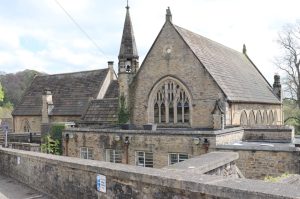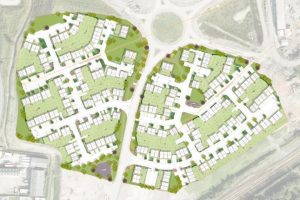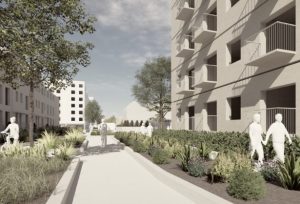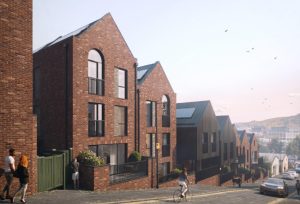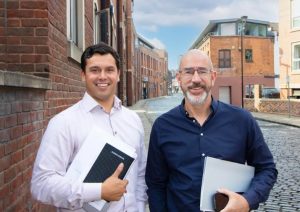BTR brand looks to bring rental sector out of the dark ages

BTR brand UNCLE marked its entry into Leeds its recently opened 463-apartment development on Whitehall Road, close to the Wellington Place office development.
Ryan Prince, founder of the brand and vice-chairman of its owner, Realstar, sees a strong future for customer-focussed rentals, saying the UK’s rental market was still in the dark ages.
“You’re now seeing here a first-generation product coming to market,” he said. “And generally speaking, it’s still a rounding error in the scheme of things across the country. If you look at rental housing, 98% of places that are available for rent are owned by people who own less than three flats.
“Where we are as a marketplace is where Canada was in the early ’70s. I come from Toronto, so that’s my frame of reference. Canada’s 35, 36 million people, and a large institutional apartment owner would own anywhere up to 60,000 rental units. A good sized one in Canada would probably own 25,000 units.

Ryan Prince
“If you look at us in the UK, we would be one of the larger, more established players and we’re just getting to five. Barely anyone’s made it to 10. There’s a long way to go.”
UNCLE is keen to position itself as a forward-thinking owner. Its hotel apartment-inspired model – even its name – stresses a familial approach. “There’s this idea in the brand that the English housing system is still feudal. Even the vocabulary of ‘landlord’ is feudal, and so we like to say we take the lord attitude out of being a landlord. The premise of the brand is to update and modernise what people’s ideas are of renting.”
UNCLE launched in 2017 in London, where it now has five apartment properties, a sixth due to open in July. Its first development outside London was in Manchester. Leeds is its second.
Prince attributes the state of the UK rental market to local authorities. “There are two very different stories between London and not-London. Where not-London have had strong mayors they’ve done really well.” He cited Manchester as an example, praising former Manchester City Council chief executive Sir Howard Bernstein’s creation of an environment where developers and investors had certainty and confidence in their ability to execute.
“As a result they came there, they put in money. He delivered his end and gave them the permissions they needed, and they came. You have way more cranes in Manchester than in London. In London you have the opposite situation where house builders are leaving the city by the busload.”
A second factor, he conceded, was a British aspiration to home ownership. “The UK does come with a stigma that other parts of the world don’t have, where people have this idea that home ownership equals success and not-home ownership doesn’t.
“I think that’s largely linked to the fact that for 35 years, when interest rates went from the mid-teens to zero, owning a home was a way to get a pension fund, that the value of your home was your best investment.
“I think that sentiment is changing, in part because millennials have different attitudes around ownership versus experience. There’s a combination and a confluence of things, like expense and earnings multiples that you need, but also flexibility of life and savviness. The savviness part is the last thing to come. But I’ve been saying for a long time that if you do the maths on taking on what would be your home, the deposit, the repairs and maintenance bills and interest on your mortgage. and you put that in a Vanguard S&P500 tracker, you’d be more flexible and better off than you would be owning.”
UNCLE pitches itself on the luxury end of apartment rentals. The Leeds development is typical, with bespoke, designed amenity spaces, including a cinema room, residents’ gym and Peloton room, a resident=only bowling alley, co-working spaces and other facilities. “We want renters to feel respected, looked after, and even a little bit loved and we think UNCLE Leeds does just that,” Prince said
Its model is distinctly urban. It requires densely populated markets. Where does Prince see further growth opportunities? “I can see us going to other larger, non-London secondary markets around the UK – the likes of Bristol and others. Beyond that, the longer-term aspiration for the brand is to travel beyond the island and to go to other major 24/7 cities, whether that be Toronto, New York, LA or on the continent – Amsterdam and so on.”

